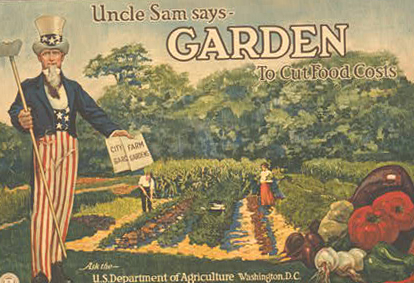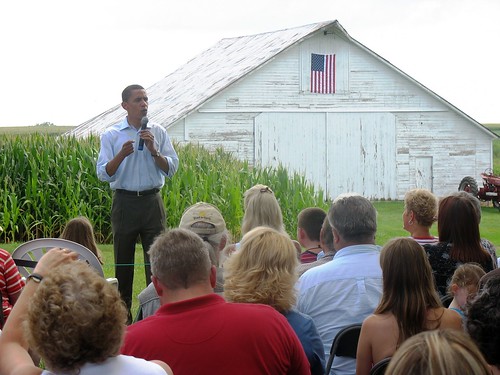 Back before the election, I posted about Michael Pollan's open letter to the next president, and about the movement to plant a "Victory Garden" on the grounds of the White House.
Back before the election, I posted about Michael Pollan's open letter to the next president, and about the movement to plant a "Victory Garden" on the grounds of the White House. I read an article last week about the Obamas bringing a chef to the White House who it turns out is involved in local food circles. This very hopeful news in terms of our new president's awareness about issues related to food, hunger, sustainability, and the politics of food, and buried in the article is a mention of the possibilty of a kitchen garden at the White House:
"Mr. Kass’s appointment signals changes at the White House that should please chefs like Alice Waters, who have lobbied the Obamas to set an example for the rest of the country by emphasizing food that is healthy, local and sustainable. It further suggests that a vegetable garden on the White House grounds, another of Ms. Waters’ dreams, could be on the horizon."
Symbolic though it may be, having someone cooking good food in the White House and maybe even growing food on some of that copious lawn is good news for all of us who care about where food comes from; who has access to good, clean, healthy food; and changing the culture of eating in the U. S. of A.
Symbolic though it may be, having someone cooking good food in the White House and maybe even growing food on some of that copious lawn is good news for all of us who care about where food comes from; who has access to good, clean, healthy food; and changing the culture of eating in the U. S. of A.



